
1. French Court Orders Fishing Ban After Hundreds of Dolphins Wash up on Coast
France’s top administrative court ordered the government to ban fishing in parts of the Atlantic Ocean to protect dolphins as more than 910 dolphins have washed up on France’s coast since the beginning of winter. NGO’s such as Sea Shepherd have filed legal complaints against the government due to dolphin and porpoise deaths.
They stated the government wasn’t doing enough to protect the species. The French government has held back from imposing fishing bans, and instead used other tactics to protect the dolphins, such as using onboarding cameras or loud sound equipment to drive the dolphins away. The State Council ruled that these instruments do not do enough to protect these species though, and further action needs to occur. France’s government has six months to establish no-fishing zones and to monitor the accidental capturing of dolphins.
Thank you for your generous gift that will help us continue the production of this weekly, free publication
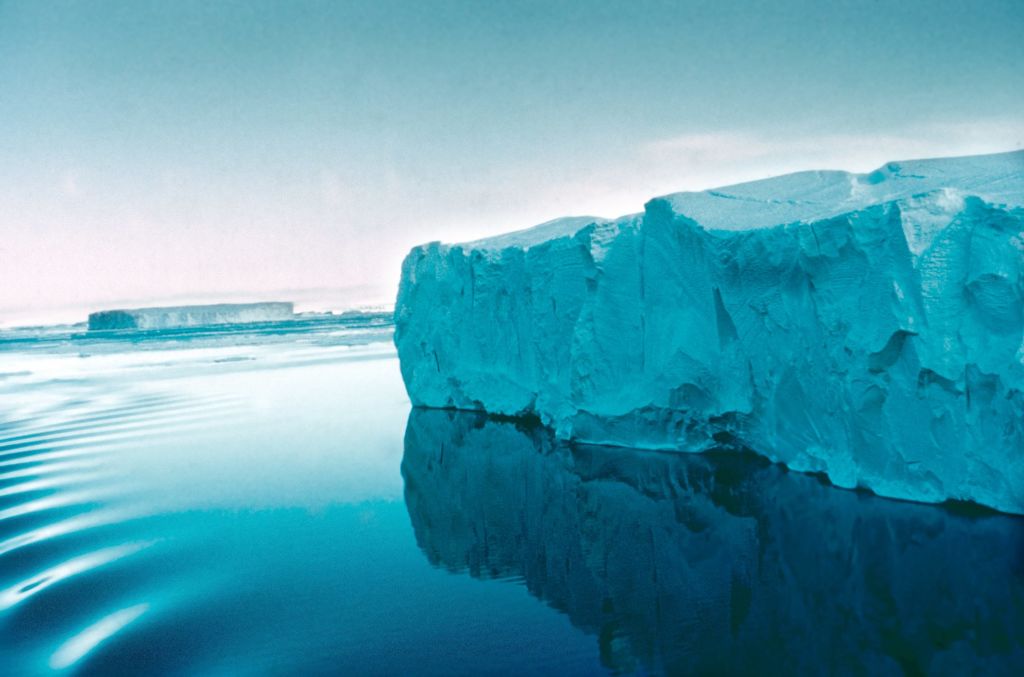
2. Might the Politics of the South China Sea Weaken the High Seas Treaty?
After more than a decade of negotiations, states at the United Nations in New York agreed on a wide-ranging treaty focusing on high seas conservation. While this instrument is still to be approved by the General Assembly and will likely take years to come into force, it’s the most consequential development in the law of the sea in many years.
The 54-page text creates new rules for establishing marine protected areas, conducting environmental impact assessments, and managing rights related to marine genetic resources. The draft agreement on the conservation and sustainable use of marine biological diversity of areas beyond national jurisdiction (the ‘BBNJ Treaty’) is designed to be compatible with the UN Convention on the Law of the Sea (UNCLOS), but covers in detail many topics either not included or barely covered in UNCLOS.

3. Supreme Court to Consider Government Reach for Conservation
The Supreme Court agreed to reconsider long held precedent and decide whether to significantly scale back on the power of federal agencies in a case that can impact everything from how the government addresses everything from climate change to public health to immigration. Conservative justices have long sought to rein in regulatory authority, arguing that Washington has too much control over American businesses and individual lives.
The justices have been incrementally diminishing federal power but the new case would allow them to take a much broader stride. The justices announced they would take up an appeal from herring fishermen in the Atlantic who say the National Marine Fisheries Service does not have the authority to require them to pay the salaries of government monitors who ride aboard the fishing vessels. The case will be heard next term, with a ruling likely in 2024.
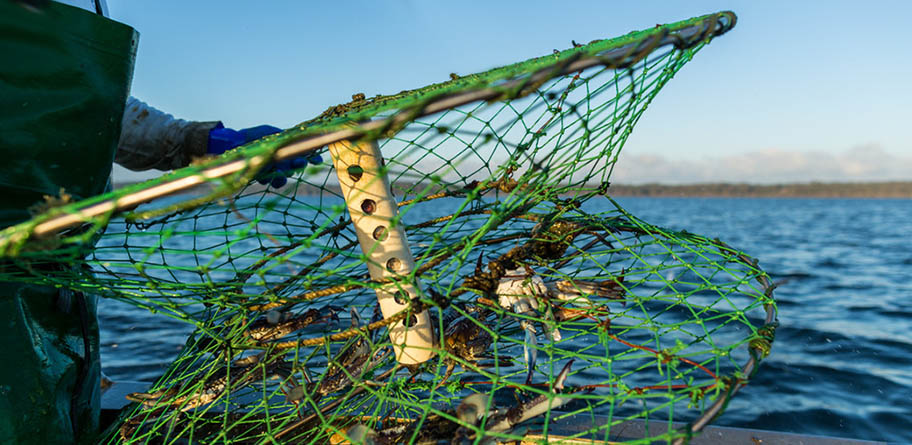
4. Thai Group Pledges to Reduce Ocean Bycatch
Thai Union Group, a seafood producer, has signed a pledge to reduce ocean bycatch, a significant contributor to marine pollution. Bycatch refers to the unintentional capture of non-target species, such as dolphins and sea turtles, in commercial fishing. As per the pledge, Thai Union Group commits to reducing bycatch rates, improving fishing gear, and increasing the use of non-entangling fishing equipment.
The company plans to work with non-governmental organizations, governments, and other stakeholders to achieve these goals. Additionally, Thai Union Group aims to improve the traceability of its products to ensure they are responsibly sourced. The company has been actively working on sustainability initiatives and aims to make its entire operation more environmentally friendly. By signing this pledge, Thai Union Group hopes to set an example for other seafood producers and encourage them to take similar steps to protect the ocean’s health.
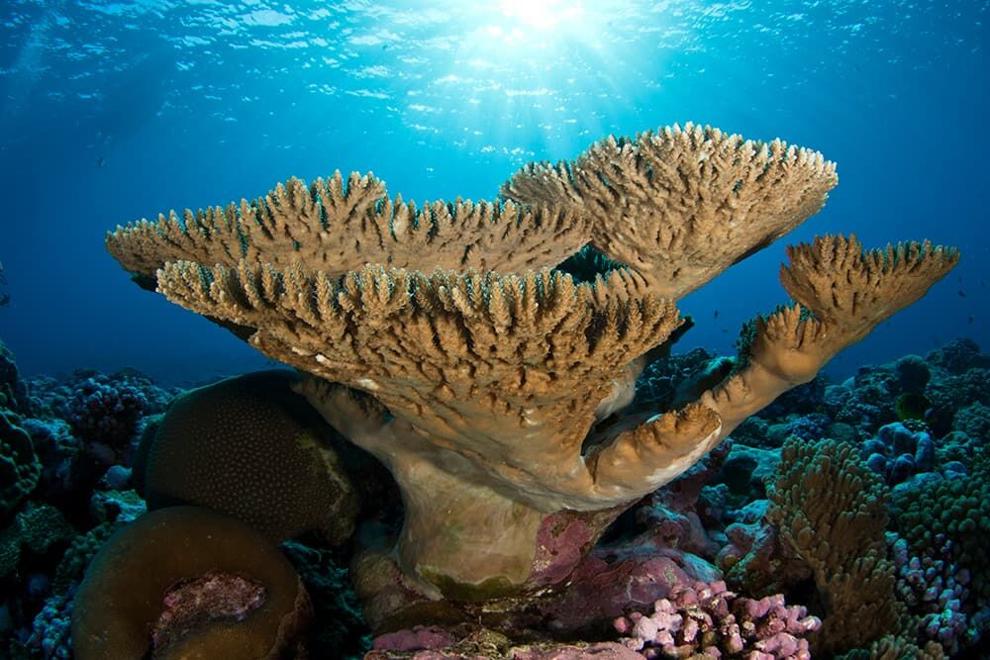
5. Marine Sanctuary Expansion Alarms Pacific Governors
CNMI Gov. Arnold I. Palacios, Guam Gov. Lourdes Leon Guerrero and American Samoa Gov. Lemanu Peleti Mauga have all announced their concerns with President Biden over the expansion of a marine sanctuary in the Pacific Remote Island Areas. They stated that closing waters around the U.S Pacific Islands would be “devastating to the local tuna economy of American Samoa and deprive the Pacific territories of economic development opportunities into the future.
Fisheries are the leading source of economic development within these Pacific Islands and further closures would conflict with the Biden’s Indo-Pacific Economic Framework. They stated how their “disadvantaged and marginalized communities carry a disproportionate burden for meeting national conservation goals. We do not believe taking further action to fully close waters around the Pacific Remote Islands Areas is necessary to fulfill the aspirations of your ‘American the Beautiful’ initiative”.

6. Tories to Force Holyrood Vote on Marine Plans Dividing SNP and Greens
The Scottish Tories will try to drive a wedge between the SNP and Greens tomorrow by forcing a Holyrood vote on controversial marine conservation plans. The Scottish Liberal Democrats will also try to highlight concerns over Highly Protected Marine Areas (HPMAs) in a debate at parliament this afternoon.
Under the proposal, which is a key plank of the SNP-Green joint government deal, around 10 per cent of Scottish inshore waters will be designated HPMAs by 2026, with a ban on fishing and curbs on aquaculture and sport to help improve bio-diversity. Local fishermen have warned of an existential threat to their way of life, while Argyll and Bute, Orkney, Shetland and Western Isles councils have all strongly opposed the plan.
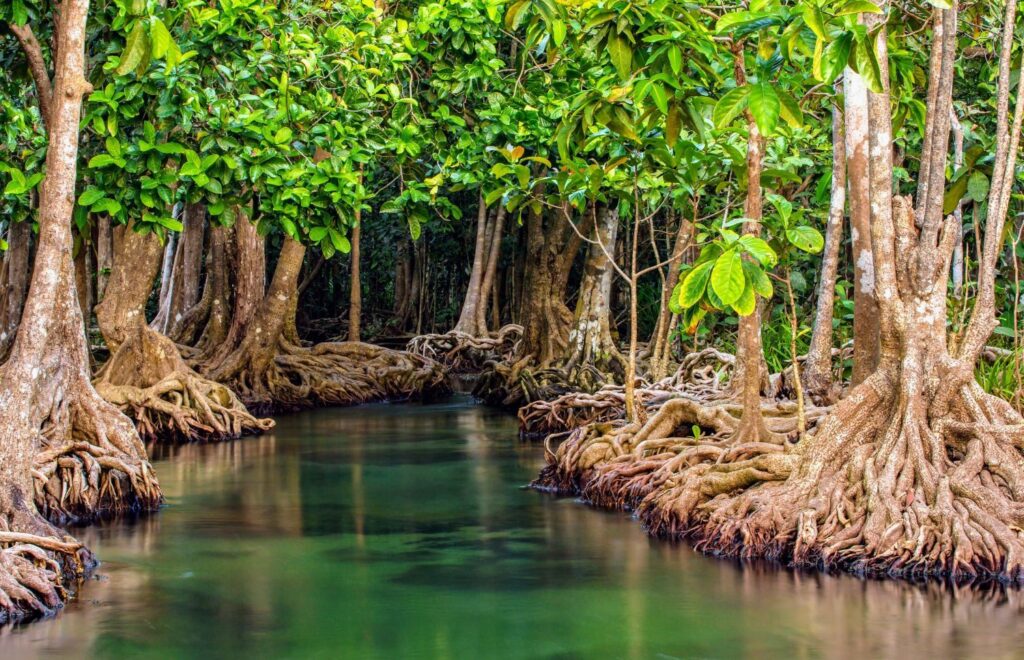
7. Understanding How Mangrove Loss Threatens Biodiversity
Although global awareness and action for ocean habitats is growing, our vital “blue ecosystems” remain threatened by rising temperatures, pollution, over-exploitation and coastal development. Today, the UN Environment Programme (UNEP) launches an exciting new interactive website that dives into four important marine ecosystems – kelp, coral reefs, seagrass meadows and mangroves – showcasing the latest scientific research on the health of these areas and the benefits they provide to nature and society.
Ahead of the launch of the Deep Dive visual feature, UNEP-WCMC marine experts – alongside research partners from Wetlands International, Manaaki Whenua Landscape Research and the universities of Cambridge and Aberystwyth – worked on a special report exploring changes in mangrove coverage since the mid-1990s, highlighting areas of both loss and of encouraging restoration, and what these changes could mean for people, carbon storage and the thousands of wildlife species dependant on and associated with mangrove habitats.
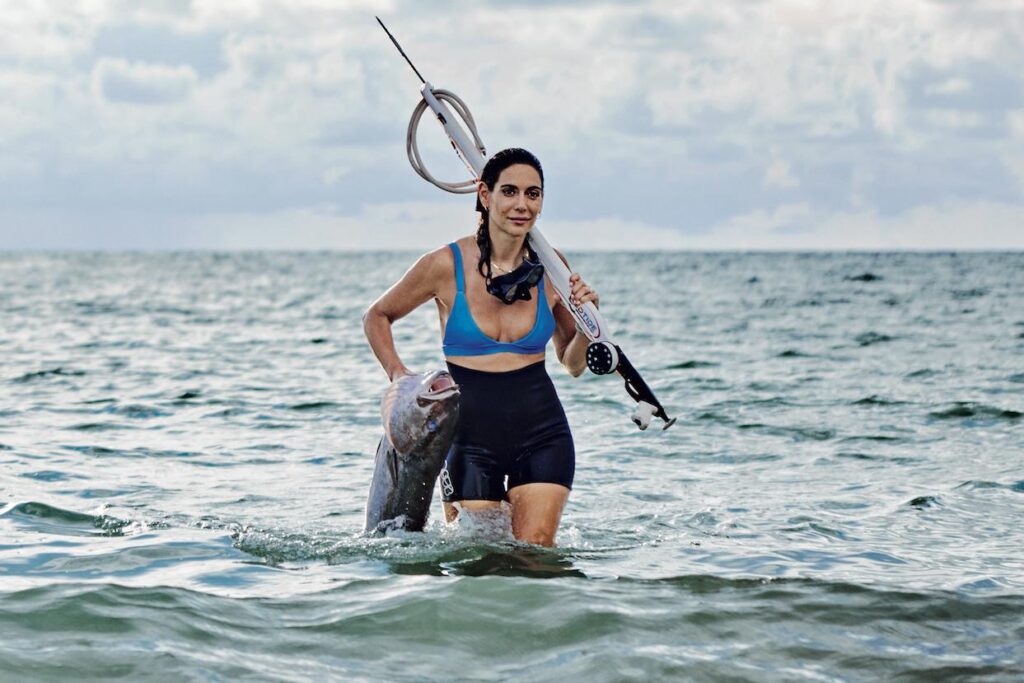
8. Cookbook Serves Seafood Recipes with a Side of Conservation
Valentine Thomas is publishing a seafood cookbook, “Good Catch: A Guide to Sustainable Fish and Seafood with Recipes from the World’s Oceans” that will offer insight on the impact of seafood sourcing and sustainable fishing. The book will combine recipes, reflection, and scientific analysis to deliver awareness of fishing practices and a guide to selecting seafood.
“Good Catch..” decodes many topics from which sustainability certifications to look for when buying seafood to advocating for a shift in narrative around marine health. The book adds nuance to common sourcing and nutrition misconceptions, including that farmed fish is unsustainable. The cookbook has 75 recipes from 14 different regions, including Sweden, Mexico and New Caledonia. Good Catch not only is a guide to smart seafood selection, but illustrates Thomas’ love for life underwater.
Editorial Comment: Sea Save “Ocean Week in Review” does not usually post stories about products. However, it appears that this cookbook is a potentially critical tool that could help readers be better ocean stewards.

9. Adopt Circular Economy to Address Pollution, Urges UN
Circular economy is defined as resources that are reused and recycled to minimize waste and maximize efficiency. The UN says achieving zero waste requires actions at all levels and says the government can incentivize waste through legislation while businesses can incorporate circular design to lessen and stop generating waste. Countries have been challenged to adopt a circular economy in waste management to address climate change, biodiversity loss and pollution.
United Nations Environment Programme and UN-Habitat have asked countries to ditch the “take-make-waste” model and embrace the circular model as the world is generating waste at unmanageable scales. Among the wastes produced include plastics, food waste, electronics, textiles and chemicals. “To safeguard our future, it is time to shift towards zero waste and circular economy.” UNEP says a zero-waste approach aims to keep waste out of landfills, incinerators and the oceans.

10. Study Finds Majority of Australians Struggle to Identify Sustainable Tuna Brands on Supermarket Shelves
According to research by the Marine Stewardship Council (MSC), it is challenging for Australians to identify canned tuna brands that have been sustainably sourced. While 57% of Australians surveyed seek out sustainably sourced tuna, 43% of tuna eaters do not recognize eco-labels such as the “blue tick” sustainability credential, and only 39% of canned tuna products on supermarket shelves were labeled with the blue tick between 2021 and 2022.
The MSC is urging tuna companies to make their environmental credentials clearer, as there is a growing level of discernment and awareness among Australians about the environmental impact of what they are eating. The Australian Marine Conservation Society is also looking to broaden its scope to provide its own third-party credential of canned tuna products to ensure “industrial tuna fishing doesn’t pose any threat to biodiversity and populations of endangered species, such as dolphins and turtles.”
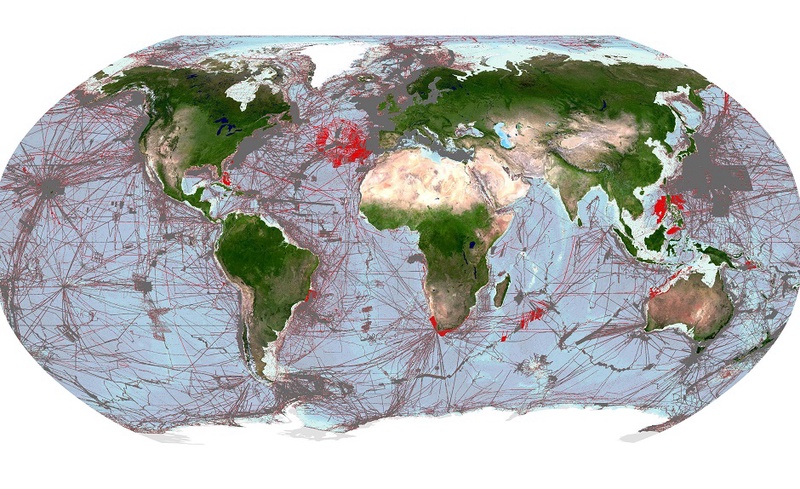
11. HSH Prince Albert II of Monaco Announces a Quarter of the Ocean Floor Is Now Mapped, Supporting UN Sustainable Development Goal
HSH Prince Albert II of Monaco announced at the International Hydrographic Organization (IHO) Assembly that an additional 5.4 million square kilometers of new data has been added to the world’s ocean floor map, increasing the total mapped area to 24.9%. This effort is being led by Seabed 2030, a collaborative project between The Nippon Foundation and the General Bathymetric Chart of the Oceans (GEBCO), and aims to map the entire ocean floor by the end of the decade.
Mapping the ocean floor is crucial in resource management, environmental change, and ocean conservation, and supports United Nations Sustainable Development Goal 14 for conserving and sustainably using the ocean. The Seabed 2030 Project is a collaborative project between The Nippon Foundation and GEBCO, with the IHO Data Center for Digital Bathymetry serving as the long-term archive for Seabed 2030.
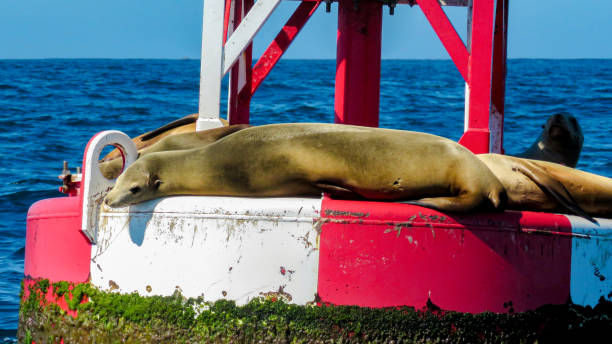
12. Study Shows Male California Sea Lions Growing Larger Over Time
Male California sea lions are growing larger despite population growth, according to a study published in Current Biology. Researchers analyzed over 330 sea lion skulls dating from 1962 to 2008 and found that males’ skulls had grown a few millimeters, or about a 10-centimeter increase in body size. However, female sea lions have not grown, as there is no evolutionary incentive for them to do so.
Males need to be larger to compete for territories to ensure successful breeding. Researchers suggest that dietary flexibility has allowed males to grow bigger, as they have expanded their foraging regions. However, the study warns that climate change and other human-derived threats could jeopardize the species’ future survival. The number of anchovies and sardines, food sources they rely on, could decline. Meanwhile, they still face other human-derived threats, such as entanglement in fishing gear, pollution, and boat strikes.
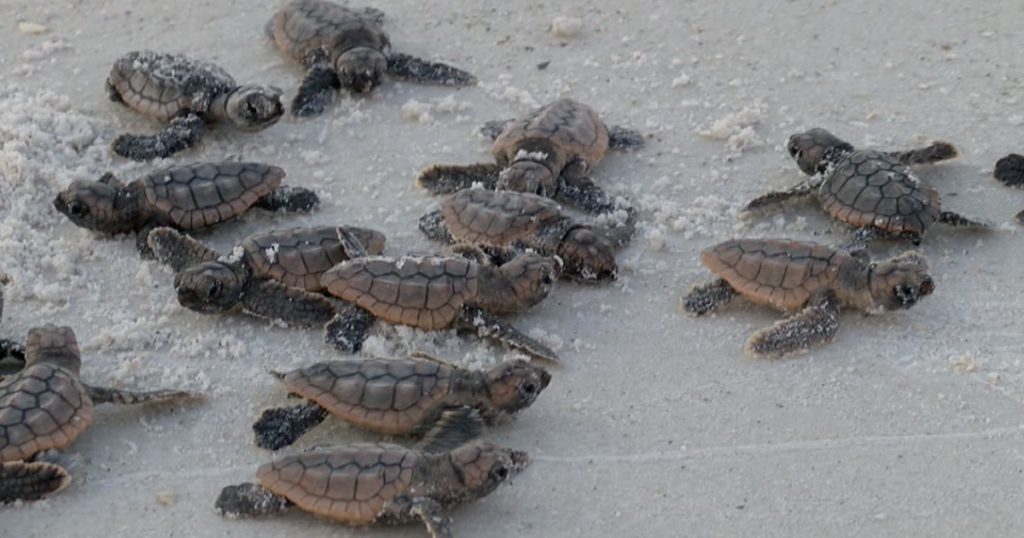
13. Florida’s Sea Turtle Nesting Season Begins, but Excess Seaweed Could Be a Threat
Florida’s sea turtle nesting season has begun, but this year’s season may face a new challenge in the form of sargassum, or thick mats of seaweed that could pose a problem for female sea turtles trying to navigate the beach. Florida leads the nation each year with 40,000 to 84,000 nests along the coast made annually by sea turtles.
Five species of sea turtles nest in Florida, all of which are either endangered or threatened, and loggerhead turtles had a successful nesting season in 2022 with 116,765 nests, thanks in part to conservation efforts. Large amounts of sargassum are projected to hit Florida beaches this summer, which could prevent female sea turtles from finding a spot to nest and become an obstacle for hatchlings as they head toward the water.
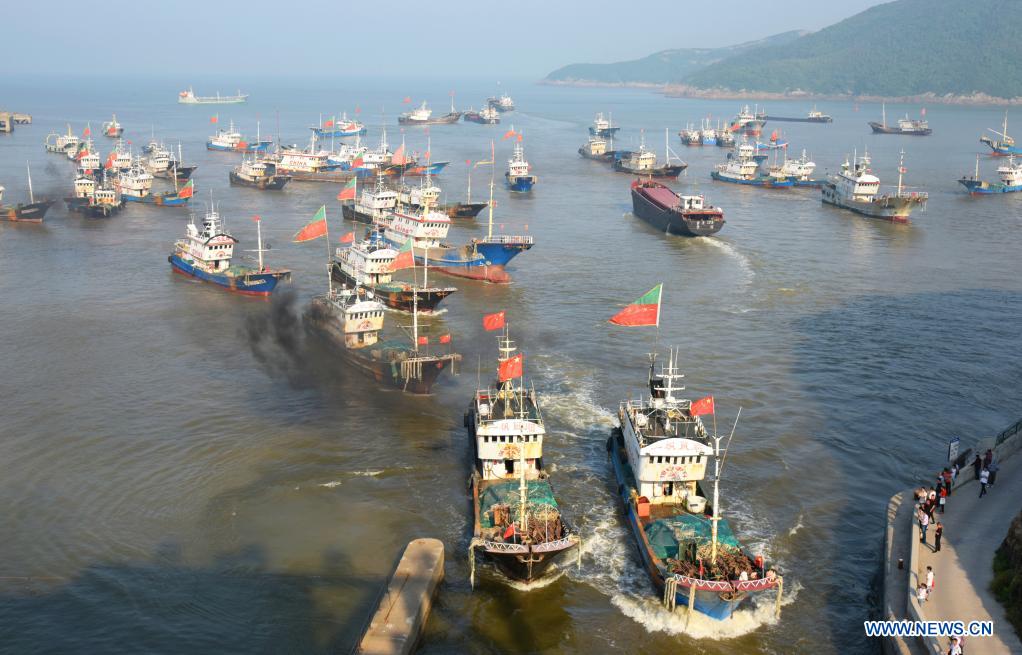
14. China Implements Summer Fishing Ban, Most Influential of the Year
China has implemented a fishing ban from May to mid-August in parts of its coastal waters to protect marine fish stocks from illegal fishing by both domestic and foreign vessels. The annual ban is the country’s most influential marine fish conservation effort and will be observed in the Bohai Sea, the Yellow Sea, the East China Sea, and areas north of the South China Sea.
The China Coast Guard and local authorities are patrolling to ensure compliance with the ban, and violators will face legal action. The ban affects 17,000 fishermen and subsidies of $10.6 million will be handed out to support marine conservation efforts. The Zhejiang province Agriculture and Rural Affairs Department is set to ban the sale of eight species of catch, including hairtail, yellow croaker, and pomfret, said that after May 8. According to official data, nearly 8,000 illegal vessels were banned in 2021.
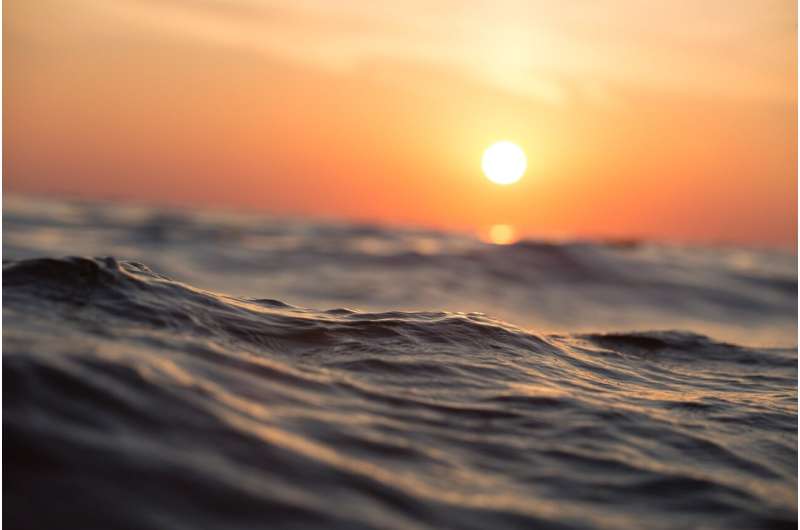
15. Researchers Suggest Tackling Poaching From a Psychological Perspective
A new study suggests that a fresh approach to protecting marine parks could be key to conserving fish populations. Currently, many Marine Protected Areas exist only on paper due to persistent poaching, inadequate funding, and poor management capacity. A research team at James Cook University used a global dataset of coral reefs to show that improved governance could double fish biomass and increase the likelihood of encountering top predators, such as sharks, which are essential for the health of our oceans.
The researchers suggest using a range of social approaches to improve compliance, such as understanding what motivates people, correcting misperceptions about what others are doing, emphasizing social norms, and effective communication strategies. By adopting new strategies like these, researchers say that protecting our oceans could become more cost-effective and efficient.

16. Some Fish Previously Thought to Benefit Coral Reefs Actually Contain Harmful Pathogens
New research from Rice University has revealed that feces from “grazer” fish, which consume algae and detritus, contain high levels of coral pathogens that are harmful to coral reefs. Previously, it was believed that these grazers helped keep reefs healthy, while fish that eat coral, known as corallivores, were thought to weaken reef structures, damaging and, in some cases, even killing corals in controlled experiments.
However, the study found that corallivore feces contained many beneficial bacteria that could act as a “coral probiotic” and Researchers suggest that corallivore feces could be an important source of beneficial microbes for corals, as the fish naturally disperse their feces, and any beneficial organisms it contains, over a wide area. The study also calls for further testing of how fish feces affect corals in the ocean to better understand the interactions happening within reefs around the world.
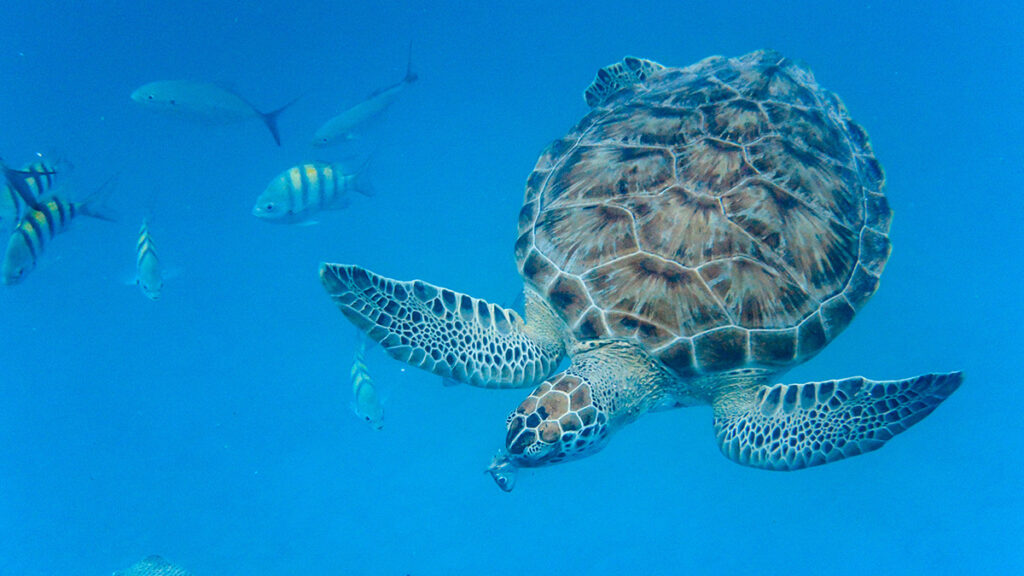
17. Collaborative Approach Key to Achieving Sustainable Marine Biodiversity, Shows Study
A recent study published in the Nature Partner Journals: Ocean Sustainability highlights the need to consider management options and the changing climate to achieve sustainable marine activities and biodiversity. However, getting stakeholders from multiple sectors involved in biodiversity-use scenario analysis can be difficult. In a case study of a marine protected area in the French Mediterranean, researchers combined visioning narratives and an ecosystem-based model to explore future scenarios for the area up to 2050.
Although the study revealed a mismatch between the set goals and the predicted outcomes, the approach led to important discussions that identified new ways to achieve sustainability. The article suggests that by integrating research and decision-making through collaborative modeling frameworks, it is possible to enhance adaptive management policies and identify pathways toward sustainability in marine species.

18. Philippine and US Leaders Commit to Marine Conservation and Renewable Energy Collaboration
Philippine President Ferdinand “Bongbong” Marcos Jr. and United States President Joe Biden have pledged to expand collaboration on renewable energy production as part of efforts to reduce greenhouse gas emissions and address the threat of climate change. The two leaders noted that the Philippines is particularly vulnerable to the impacts of the climate crisis and will work together on an ambitious program of cooperation on wind, solar, and geothermal energy, as well as reducing greenhouse gas emissions from waste, road, and shipping sectors.
The leaders also committed to expanding cooperation on environmental protections, including marine conservation and protecting coastal areas from degradation. The US plans to establish an Open-RAN Interoperability Lab in Manila to facilitate cooperation and knowledge sharing between the two countries on science and technology.

19. Florida Marine Laboratory Receives Grant to Restore Coral Reefs
Mote Marine Laboratory in Sarasota, Fla. has received a $7 million grant from the National Oceanic and Atmospheric Administration to restore coral reefs in Florida Keys. The project aims to restore coral reefs at 10 sites along Florida’s Coral Reef Tract, just offshore of the Florida Keys Archipelago. The laboratory has already restored nearly 200,000 corals and aims to double that number using the grant money.
The process involves breaking the corals into small pieces and letting them grow into new colonies. They will also introduce 34,000 Caribbean King Crab, which eat algae and improve coral growth and survival. Coral reefs generate millions of dollars in tourism and recreation, and also serve as a habitat for fish and protect the shoreline from hurricanes. The grant will help address the threats of pollution and disease that have affected the ecosystem.
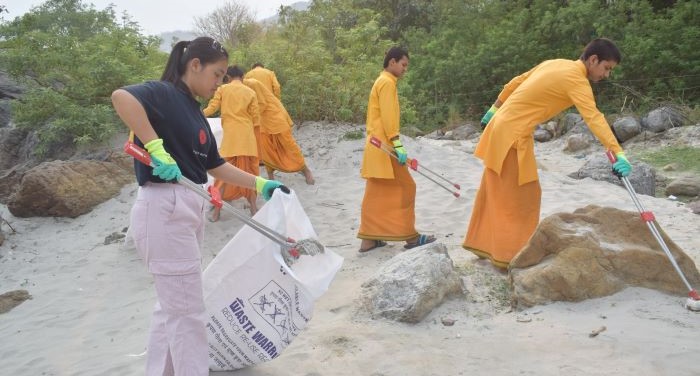
20. Sustainability Helpline Launched to Combat Plastic Pollution in the Ganges River Basin
The Centre for Global Affairs and Public Policy (CGAPP) and Switcheko launched an all-India sustainability helpline to monitor plastic pollution in the Ganga river system. The helpline, which is part of the CGAPP’s project on “Tackling Plastic Pollution in the Ganga Basin,” provides solutions and expert guidance on various sustainability issues. The project, which includes a research component led by an all-women team, aims to combat the danger of effluents and microplastics that threaten the aquatic ecosystem and environment in the Ganges basin.
The solution and outreach components of the project involve expos in Rishikesh and Varanasi, that will showcase plastic alternatives and innovative technologies for waste management and river cleaning. The team will also conduct outreach programs with local communities and stakeholders, including youth. The project will involve multiple academic and research institutions and individual researchers from India, Bangladesh, and around the world.
Editorial Comment: Even though the Ganges basin is predominantly a freshwater system, the pollution issues that are happening in this region can still have an impact on the oceans.
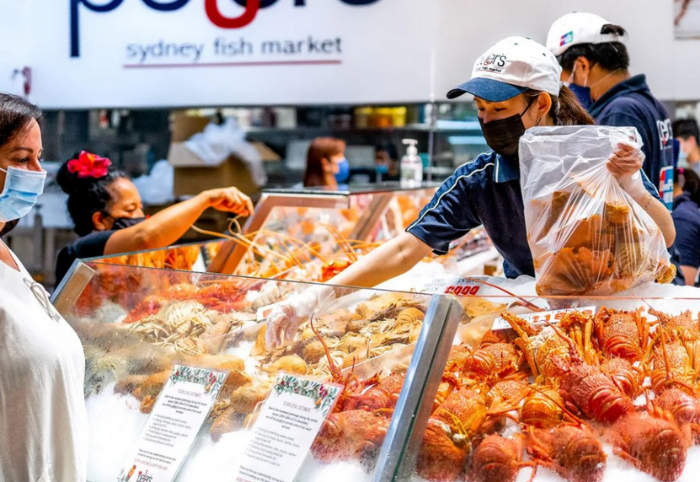
21. Australian Seafood Consumers Lack Information on Origin due to Inadequate Traceability and Transparency
Recent research by Monash University reveals that Australian seafood consumers lack information on the origin of their seafood due to inadequate traceability and transparency in the supply chain. While advanced technology like blockchain can improve traceability, some central supply chain actors resist using it. The Australian Marine Conservation Society (AMCS) has called for better traceability and labeling requirements and tighter import controls to protect consumers.
However, some wholesalers have resisted change, considering it a threat to their competitive advantage. The lack of traceability and transparency in the seafood market is of concern since it leaves consumers open to consuming illegal, destructive, and exploitative seafood from imported fisheries and farms. “The government’s election commitment to consider a framework that addresses … illegal, unreported and unregulated (IUU) fishing practices will be critical to help ensure the needed transformation of this industry,” AMCS Fair Catch Campaign Manager Dr. Cat Dorey said.

22. Australian Scientists Develop Cost-Effective and Scalable Method to Produce Ultra-Pure Graphene
Australian scientists have successfully produced an extremely pure sample of graphene, a highly versatile and sought-after material with a wide range of potential applications. Graphene, which is made up of a single layer of carbon atoms, has exceptional strength, flexibility, and electrical conductivity, making it ideal for use in various fields, including electronics and biomedicine. However, producing graphene of high purity is challenging, as the process is susceptible to impurities that can affect its properties.
Scientists at the University of Adelaide have developed a new method that uses a combination of copper and hydrogen to produce ultra-pure graphene. This new method is more cost-effective, environmentally friendly, and scalable than previous methods. The researchers believe that their discovery could unlock graphene’s full potential and lead to new applications in various industries.




